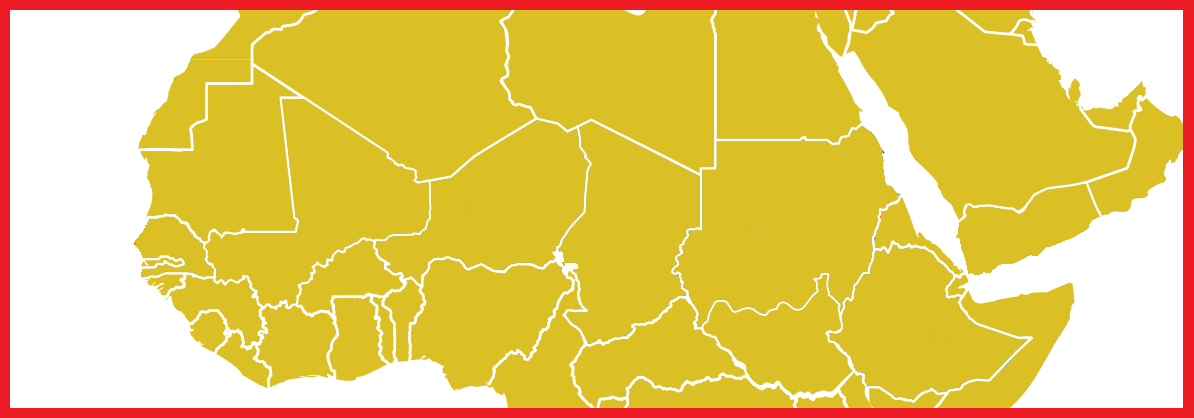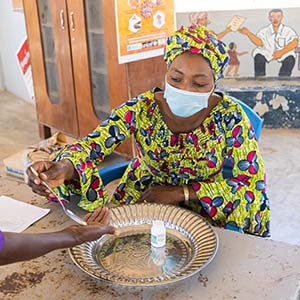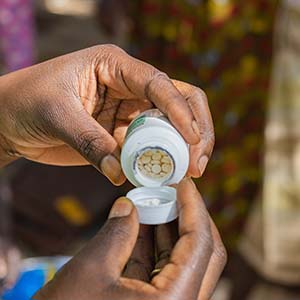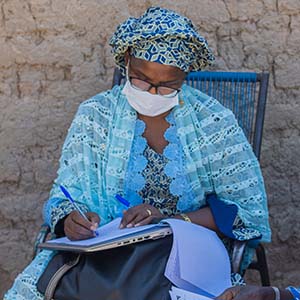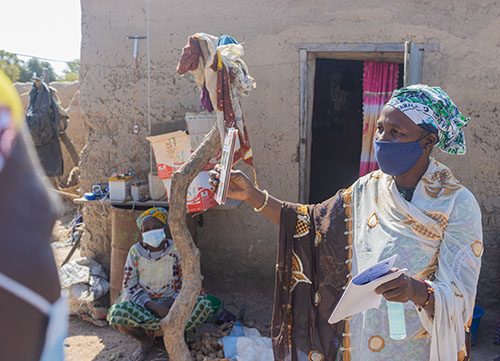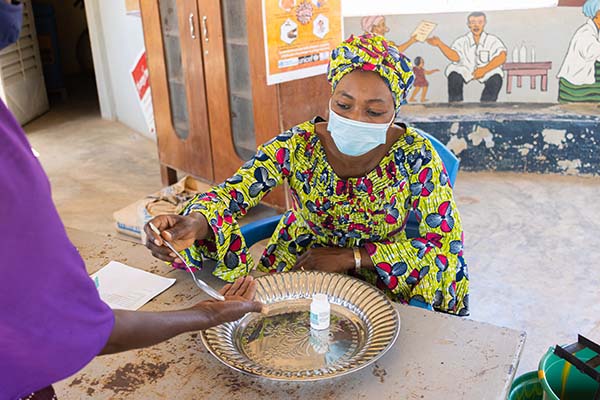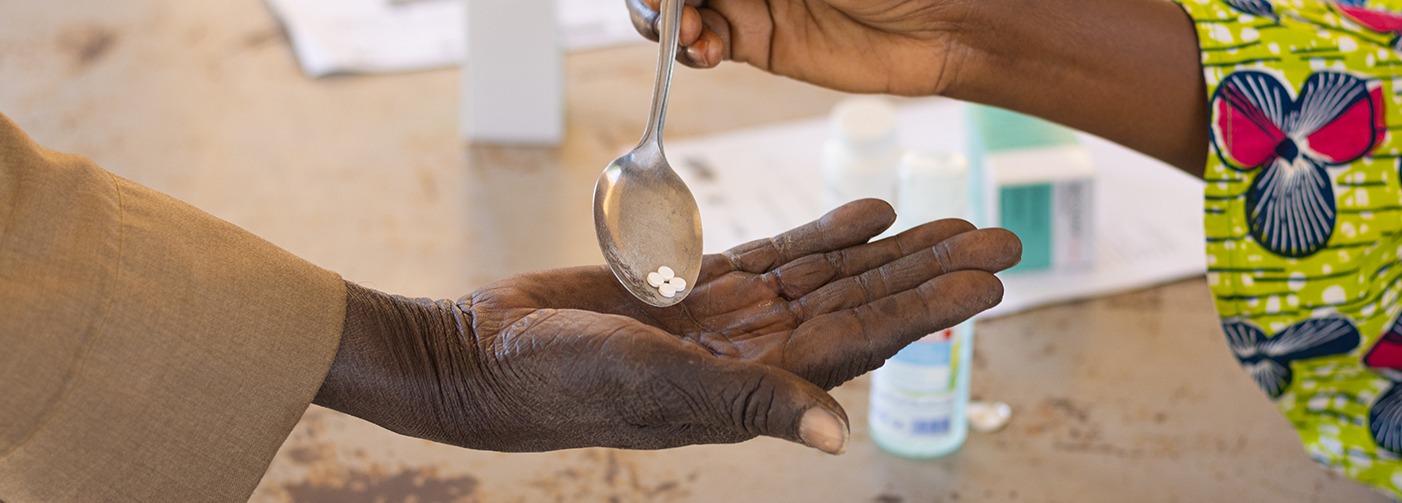
REACHING THE LAST MILE FUND
The Reaching the Last Mile Fund (RLMF), a ten year, multi-donor fund dedicated to the elimination of river blindness and lymphatic filariasis, is in its third year of implementing activities. Despite the uncertainty presented by COVID-19, program partners have continued to build on the successes of previous years. After MDA activities resumed in both Senegal and Mali, we supported river blindness and lymphatic filariasis treatment worth $26 million for six million people, and supported the training of over six thousand health workers to help expand treatment and outreach.
Niger completed the necessary evaluations in line with the WHO’s guidelines to verify river blindness elimination. In 2021, Niger is poised to be the first country in Africa to eliminate river blindness – a feat that was considered scientifically impossible for decades. In Senegal, impact evaluation results processed in 2020, combined with earlier results, suggest that Senegal is on track to soon declare regional elimination of river blindness in most areas of the country.
Despite the challenges of the year, the RLMF focused its efforts on sharing lessons learned through webinars, academic articles, and conferences with the broader NTD community. This deep level of engagement has reenergized the RLMF to charge forward with bold elimination goals in 2021. Check out the RLMF Resource Center for more.
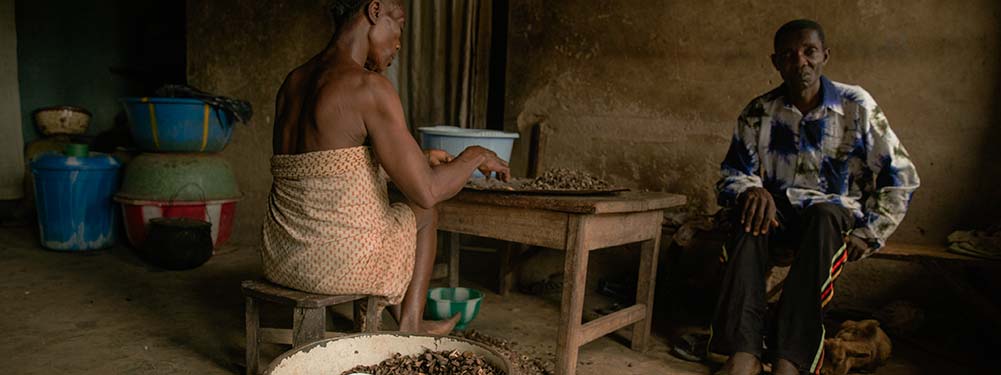
ANNUAL REPORT REACHING THE LAST MILE FUND
“River blindness is a disease that attacks from head to toe. When you have this disease, you get consistent itchiness, it whitens your feet, and eventually reaches your eyes causing you blindness. Ivermectin has been of great benefit to our community since this mass treatment began.”
Minata Coulibaly, CHW in the Koulikoro Region of southwestern Mali
RLMF’s Impact 2020
Spotlight Mali
Minata Coulibaly is one of more than 3,000 CHW in Mali and has been working for over ten years in the Koulikoro Region of southwestern Mali. Equipped with gloves and masks to protect herself and her community, she went door-to-door making sure everyone in her community received treatment for river blindness. “Ivermectin has been of great benefit to our community,” she says.
“Since the mass treatment began, many of our old people have found peace from the itching.” In the earlier years of her work, Minata recalls women in her community grinding and mixing charcoal with ash to quell the intense itchiness that comes with river blindness. Spread through small black flies that breed in fast-flowing waters, river blindness and the misery it afflicts on many is now close to being eliminated in Mali. The RLMF has supported delivery of over nine million treatments in Mali since 2018 and, because of this success, is now supporting the country to scale down treatment for river blindness in areas where it is no longer needed.
Since 2019, the RLMF has supported Mali’s Ministry of Health (MOH) and partners to complete a series of impact evaluations to verify if river blindness has been eliminated. This year, results from the evaluation suggest that Mali may have achieved elimination of river blindness in up to 95% of areas where the disease was once present. In 2021, additional evaluations and research will confirm these results. If confirmed, treatment could stop in these areas by 2022. Once these evaluations are completed, Mali will no longer require mass treatment with ivermectin, representing annual cost savings of over $7M in drug donation costs and over $200,000 in implementation costs.

